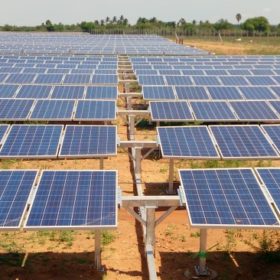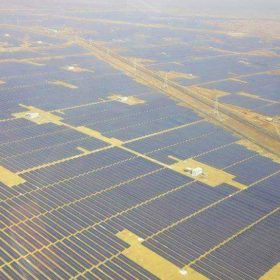Renuka Sharma promoted to APAC director at BayWa r.e.
Renuka Sharma, who previously served as the managing director of BayWa r.e. Thailand, is now BayWa r.e.’s energy solutions business director for the Asia-Pacific (APAC) region.
Europe will be our next stop – S&W solar interview
Having bagged large orders in the U.S. and Australia, Indian multinational engineering, procurement and construction (EPC) services provider Sterling and Wilson Solar is bidding for tenders in regions which have eased up business lines, Europe among them. Kannan Krishnan, S&W’s chief operations officer for solar in India and the South Asian Association for Regional Cooperation area, speaks to pv magazine about the impact of Covid-19 on the solar EPC business and the company’s expansion plans.
Covid-19 pandemic puts 150 GW of PV, wind at risk in Asia
Up to 150 GW of PV and wind projects could be postponed or canceled throughout the Asia-Pacific region by 2024 if the coronavirus-triggered recession continues beyond the current year, according to new research by Wood Mackenzie.
Project developers in south Asia can secure cash from IRENA funding pot
The Climate Investment Platform launched by three multilateral bodies in September is now open for business and renewables companies in developing nations across 14 regions including south Asia could qualify for help with clean energy facilities, renewables-related grid improvements and energy efficiency schemes.
AC Energy and UPC Solar form new JV for Asia Pacific
The joint venture company targets the construction of over 1 GW portfolio in the next few years, with an initial focus on India, South Korea and Taiwan.
India’s renewable power generation cost the lowest in Asia Pacific
The cost of solar power generation in India has fallen to half the level seen in many other markets in the region due to extensive solar resource, market scale and competition.
Electrifying the current taxi fleet would help India cut emissions faster: Wood Mackenzie
Though electric vehicles are up to 67% less emissions intensive than gasoline cars, their competitiveness depends on many factors like the source of electricity used for vehicle and battery manufacturing and charging. Given that India still has a high share of coal or other fossil fuels in its power mix, electrifying the current car taxi fleet would help it cut emissions faster than incentivising the use of privately owned EVs because of the taxis’ greater utilisation in terms of miles travelled.












